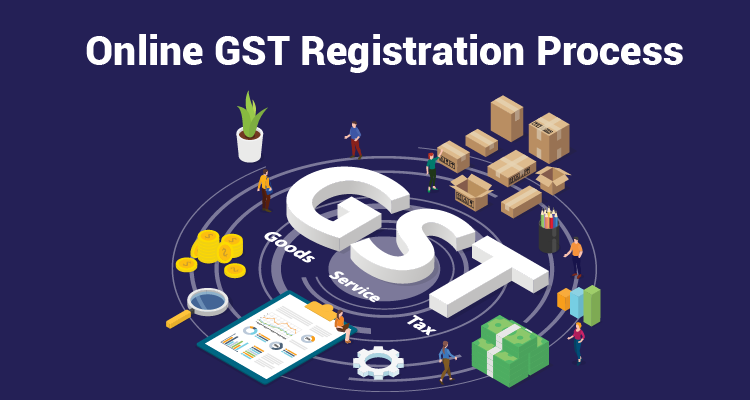Budget friendly Options for the Best GST Registration Services in Singapore
Budget friendly Options for the Best GST Registration Services in Singapore
Blog Article
From Beginning to Finish: The Ultimate Roadmap to GST Enrollment for Organizations Looking For Financial Stability
Browsing the complexities of Goods and Services Tax (GST) enrollment is a vital action for organizations pursuing economic stability. From understanding the basic principles of GST to conforming with post-registration standards, the process can appear discouraging at first glimpse. Breaking down the roadmap into manageable steps can enhance the enrollment trip for organizations looking to enhance their financial standing. Let's check out the necessary parts that compose this ultimate roadmap and discover how each stage adds to laying a solid structure for financial success.
Comprehending GST Fundamentals
Exploring the basic concepts of Product and Services Tax (GST) is necessary for obtaining a thorough understanding of its effects on organizations and the economic situation. GST is a value-added tax obligation levied on most items and solutions for domestic consumption. It has actually changed multiple indirect tax obligations that existed in the pre-GST period, enhancing the tax structure and boosting convenience of doing service in India. Under the GST system, both products and services are strained at a certain rate, which is figured out based on their classification. If their annual turnover surpasses the threshold limitation set by the federal government, services are required to sign up for GST. Input Tax Credit (ITC) is a substantial function of GST, permitting services to claim credit score for taxes paid on inputs, lowering the general tax obligation concern. Understanding the basics of GST is essential for businesses to abide by tax obligation policies, handle their funds successfully, and add to the country's financial growth by getting involved in a transparent tax system.
Qualification Standards for Enrollment
To sign up for GST, organizations need to fulfill details qualification standards developed by the federal government. The main eligibility requirement is that any business associated with the supply of items or services with an annual accumulation turn over over the threshold limitation set by the authorities should register for GST. Since the current regulations, the threshold limit for GST enrollment is a yearly aggregate turnover of 40 lakhs for organizations running within a state, besides special group states where the restriction is 20 lakhs. Furthermore, certain companies are required to sign up for GST irrespective of their turn over, such as interstate vendors, laid-back taxable individuals, and companies liable to pay tax obligation under the reverse charge device. It is critical for services to thoroughly analyze their turnover and purchase types to determine their GST enrollment obligations properly. Failing to register for GST when eligible can lead to fines and legal repercussions, making it vital for companies to adhere to the defined eligibility standards.
Documents Required for Registration
Having fulfilled the eligibility standards for GST enrollment, businesses have to now guarantee they have the requisite papers in place to continue with the registration procedure effectively. The records required for GST enrollment typically consist of proof of organization constitution, such as partnership act, registration certification, or consolidation certification for different kinds of services. Additionally, organizations need to give papers developing the principal location of organization, such as a rental contract or electricity costs.
Step-by-Step Registration Refine
Starting the GST enrollment process entails a collection of structured steps to make certain a seamless and compliant enrollment for organizations. The very first action is to see the GST portal and submit the enrollment kind with accurate details of business entity. Following this, the candidate obtains a Short-term Recommendation Number (TRN) which is made use of to return wikipedia reference to the application process if it's not finished in one go.
Next, all needed papers based on the list given by the GST portal need to be uploaded. These files normally consist of evidence of organization registration, address and identity proofs of promoters, monetary statements, and business entity's PAN card.

Post-Registration Conformity Standards

Conclusion
To conclude, businesses looking for monetary stability should understand the basics of GST, fulfill eligibility criteria, collect essential records, comply with the step-by-step registration procedure, and adhere to post-registration guidelines - Best GST registration services in Singapore. By sticking to these actions, services can guarantee compliance with tax obligation guidelines and maintain economic security over next time
In addition, particular companies are required to sign up for GST irrespective of their read here turn over, such as interstate distributors, laid-back taxable individuals, and services liable to pay tax obligation under the reverse charge mechanism.Having met the eligibility standards for GST enrollment, businesses need to now guarantee they have the requisite papers in place to continue with the registration procedure effectively. The papers required for GST registration typically include evidence of company constitution, such as collaboration deed, enrollment certificate, or consolidation certification for different kinds of businesses. In addition, businesses require to give files developing the principal location of organization, such as a rental agreement or power bill.Beginning the GST enrollment process includes a collection of structured steps to make certain a seamless and compliant registration for companies.
Report this page